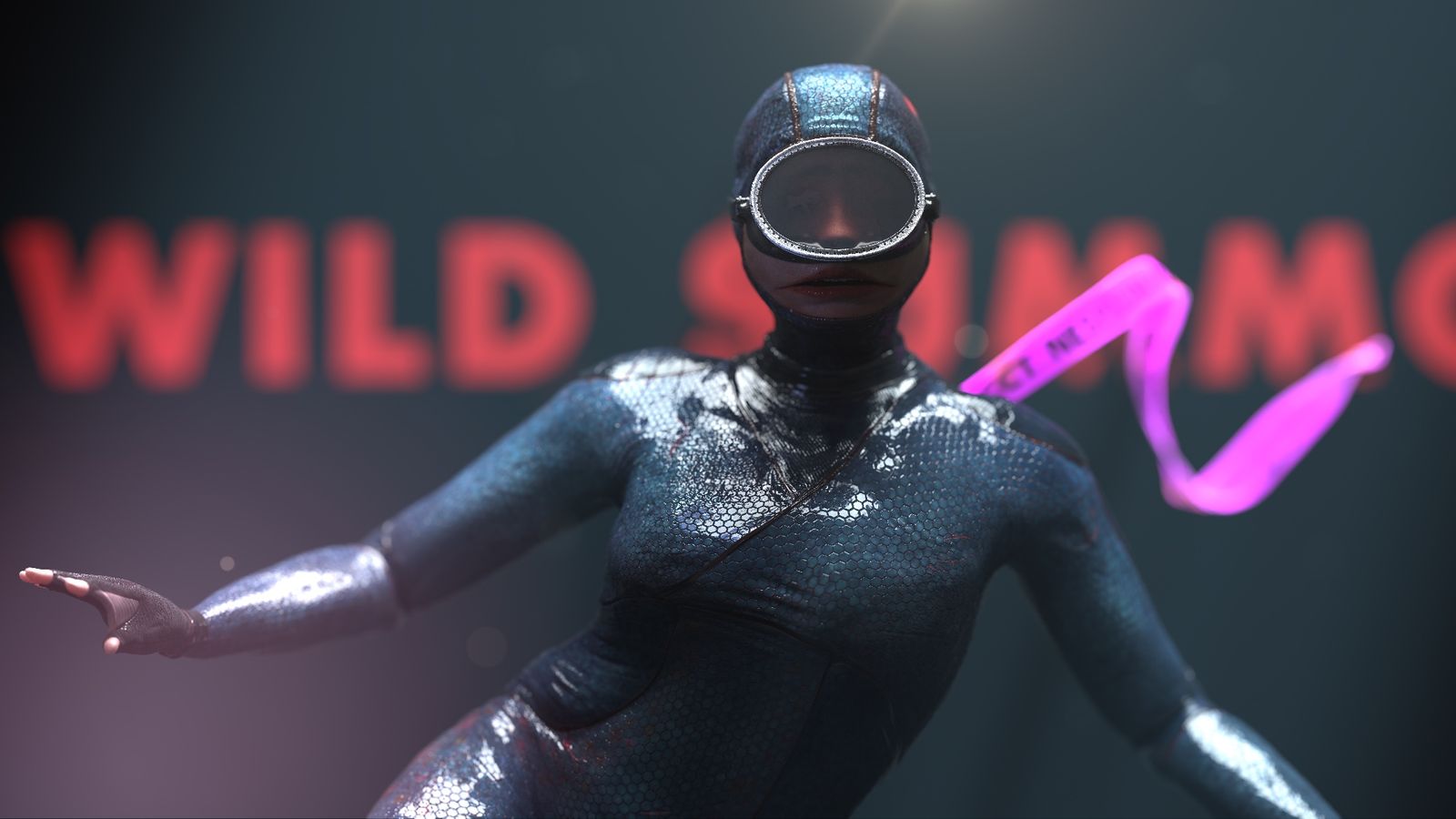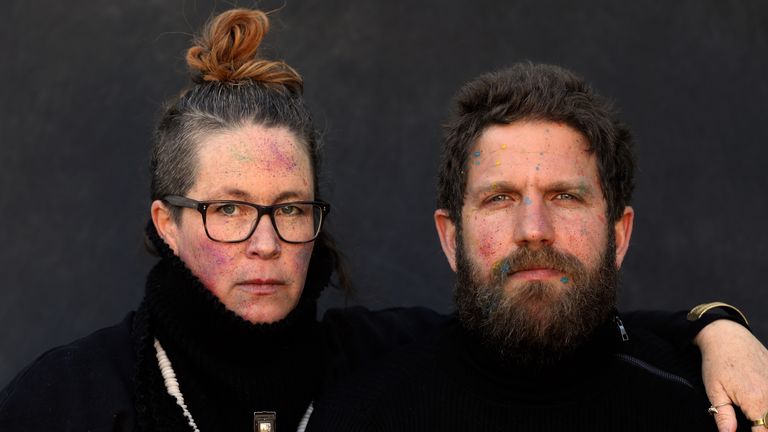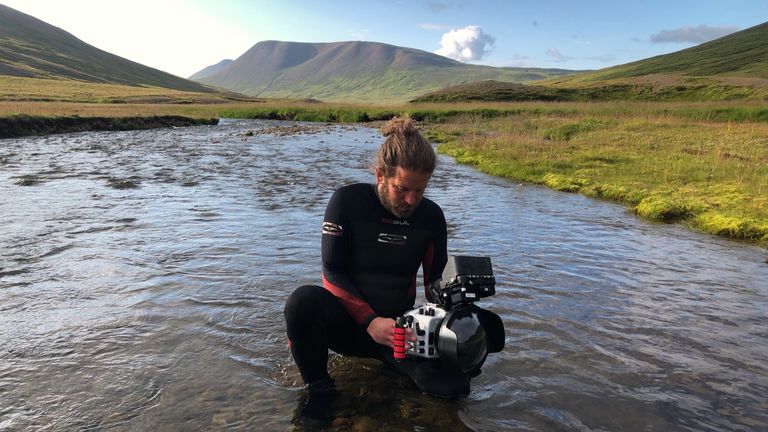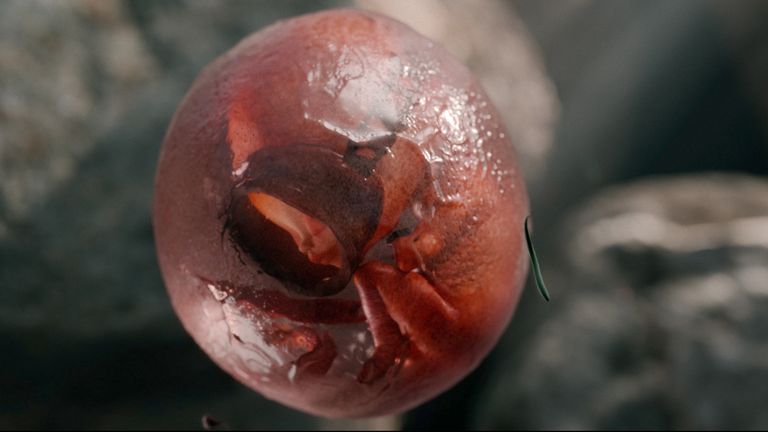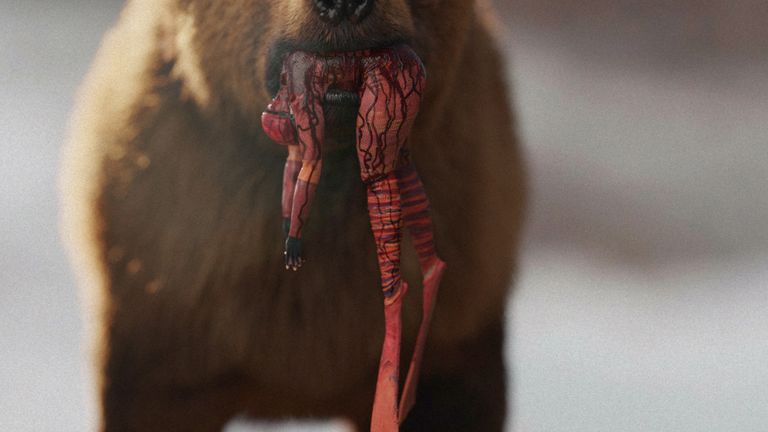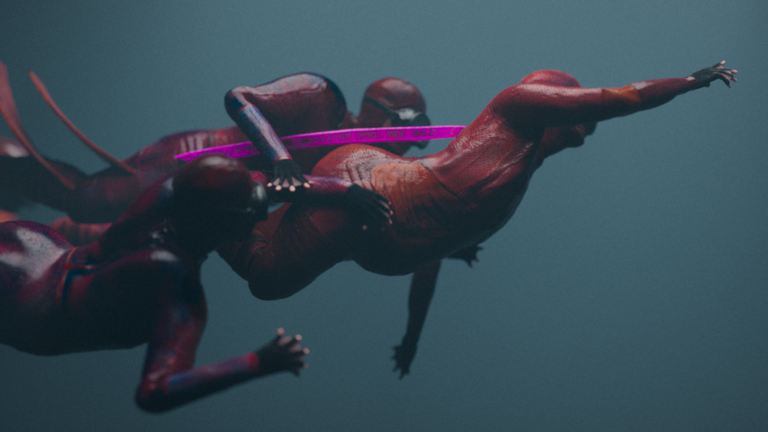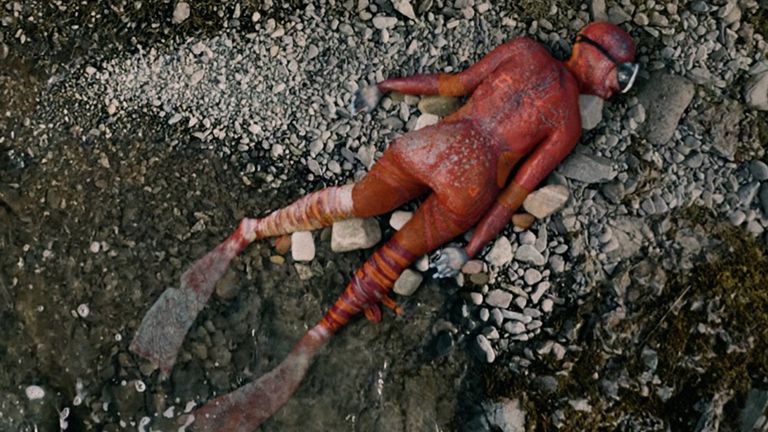Film-makers Karni Arieli and Saul Freed took a “method directing” approach to their latest film – an eco-fantasy about the life cycle of a wild salmon.
Pitching Wild Summon to the British Film Institute, the husband-and-wife team took a bold approach: “We went into the office and just said, ‘We want to become fish’.”
It paid off and they got the gig.
Moving to Iceland to learn how to dive in a bid to get the most authentic portrayal, it was a true family affair, with their eldest son, Yuli, taking on the role of drone cinematographer on the shoot.
The 14-minute animated short, which premiered at Cannes film festival and is executive produced by Don’t Look Up director Adam McKay, went on to be shortlisted for an Oscar, and is up for a BAFTA this weekend.
Hailed as a new form of a nature documentary, it combines animation with live-action underwater photography, anthropomorphising the salmon, and her babies.
Taking us on a journey through rivers and out to sea, our heroine is transposed into the body of an athletic female swimmer.
Freed says it was a new approach they felt compelled to try out: “We’re always looking for fantasy in our work… when you come to think about the life of the salmon as a human, all these situations come to light, which are just brilliant…
“We’ve seen a lot of beautiful natural history documentaries showing nature in its glory. We think we can build on top of that, show a new angle, let people connect to wildlife in a different way.”
Arieli adds: “It’s flipping the narrative on its head, because in the end, we empathise with things that are like us, that are in human form. And so, giving a salmon that you might not look too closely at a human female form, creates a sense of connection and empathy.”
She says getting the animation just right was critical: “Not too fish, not too women, not too live action, not too animation.”
Sadly for the salmon, our close association with them as a source of food doesn’t lead us to naturally connecting with their fight for survival.
Arieli explains: “The salmon is super sensitive, and they’re overlooked because people love to eat them.”
Depicting the negative human impact on their world – in addition to growing threats caused by climate change – was an important part of their message.
Arieli says: “Beyond the 50 predators that the salmon has on this journey from birth to death, man is one of its biggest problems – pollution and farming and overfishing.”
Nearly a quarter of the world’s freshwater fish are at risk of extinction, according to a report published by the International Union for Conservation of Nature late last year.
Click to subscribe to ClimateCast with Tom Heap wherever you get your podcasts
Additionally, it showed that wildlife populations have plummeted by 69% since 1970, and more than 41,000 species are under threat of extinction.
A moment in the short where the heroine finds herself confronted with a fish farm is according to Freed “probably one of the most powerful moments in the film” and one which they could give more weight to that moment, thanks to her human-recasting.
Arieli says: “Once you give a fish human form and you put them in a cage and it’s too crowded, you get these other metaphors, not only about how we look at nature but about how we look and treat each other as humans. And that’s another deep meaning within the layers of the film.”
With the self-scored music as the film’s emotional heartbeat, blending Middle Eastern influences with the Nordic landscape visuals, the narration was provided by singer and actress Marianne Faithfull.
Searching for an “iconic voice”, Arieli says she was the perfect casting as an “artist, a mother, a woman, a fighter and a survivor”.
Before plumping for Faithfull, they “went through a lot of different options” including Swedish activist Greta Thunberg, English anthropologist Jane Goodall and Icelandic singer and composer Bjork.
So, what’s the message they hope audiences will take from the film?
Arieli explains: “We’re not trying to tell people what to do or to be preachy… We’re trying to tell people to just look closely at these things, and how we interact with these elements, whether it’s farming or fishing or what we’re eating, and to make small choices, because I think we have to.
“We’re a lot more interconnected than we’re led to believe in the Western world.”
She says the short had a real impact on their youngest son, Teo, who “stopped eating fish and any seafood after making this film with us”.
And while the climate crisis message can sometimes seem a little bleak, Freed says there’s light at the end of the tunnel.
“The story’s hard… but although we do see her die in the end, the last shot of the film is the new generation, a new baby, so for us, it’s a happy end.”
With a potential eco-series in the pipeline, Freed and Arieli are philosophical about their BAFTA hopes this weekend, borrowing a metaphor from the fish star of their film: “It’s all about the journey.”
Wild Summon can be streamed for free on Bafta’s YouTube until 20 February.
Watch the full interview on The Climate Show with Tom Heap, Saturday and Sunday at 3.30 and 7.30pm on Sky News.
